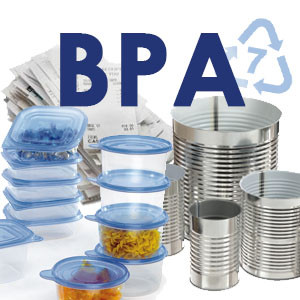
Take a trip down the plastic storage or water bottle aisle in your local grocery store and you’re likely to encounter the increasingly-common “BPA-free” promise. Bisphenol A (BPA) is a chemical that has been used in the creation of plastics since the 1950’s, but a wave of recent research is revealing that there is good reason to be wary of products that contain this chemical and its substitute, bisphenol S (BPS).
Even before its widespread commercial use, it was known that BPA mimics estrogens, reacting with the human body in the same way as natural female hormones. Not only could this lead to hormone alteration, but new research is linking BPA to a host of other health problems, including insulin resistance (increasing the risk of diabetes), miscarriages, asthma, impaired brain development and heart disease, among other ailments.
Following the initial controversy surrounding BPA, manufacturers began removing it from products that were known to contain the chemical, replacing it with bisphenol S (BPS), which is now being proven to have very similar effects on the human body. The research is not as extensive just yet, but studies are already concluding that BPS is potentially just as harmful as BPA to developing brains.
The following are some items that are known to contain BPA:
- Receipts
- Movie, event and airline tickets
- Canned foods
- Aluminum soda cans
- Sports water bottles (hot beverages can cause BPA to be released up to 55 times faster)
- Plastic containers labeled with a recycling code of 7 or 3
- Baby formula
- Dental sealants
The U.S. Food and Drug Administration banned BPA from plastic baby bottles in 2008, but the chemical and its similar substitute BPS are still found widely in many other products. In fact, the CDC has determined that BPA exposure in the U.S. is widespread, as it was detected in the urine of nearly all 2,517 people they tested.
There are actions you can take, however, to minimize your contact with these chemicals:
- Opt for stainless steel or glass containers over plastic ones.
- Turn down receipts at the grocery store, when possible.
- Don’t recycle receipts, as the BPA will contaminate the recycled paper.
- Choose safer plastic products: plastics numbered 2, 4 and 5 do not normally contain BPA.
- Choose powdered baby formula over liquid, there are lower levels of BPA in powdered formula.
- Consider purchasing fresh ingredients instead of canned ones, as the lining of aluminum cans often contains BPA.
Although BPA and BPS are still used to create a range of common products, staying informed and taking some of these suggestions can reduce your day-to-day exposure to these chemicals and your risk of developing the health conditions that they may cause.
